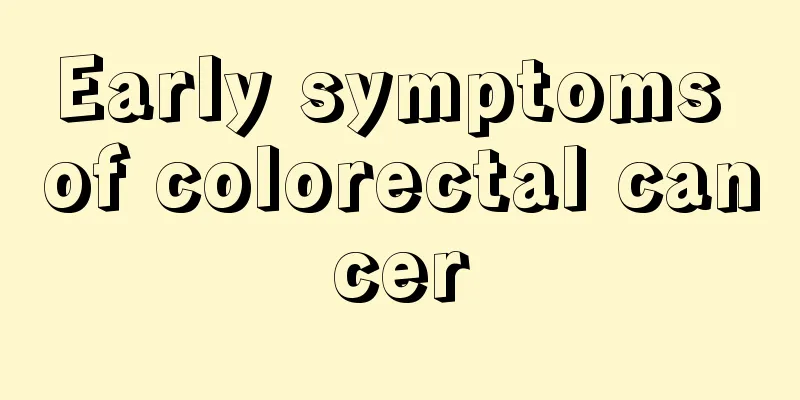Early symptoms of colorectal cancer

|
The early symptoms of colorectal cancer may not be obvious, but it is crucial to recognize these signals early. In the early stages, colorectal cancer often manifests as symptoms that are easy to ignore, such as long-term constipation or diarrhea, blood in the stool, abdominal pain, etc. If you find yourself having these symptoms, it is wise to consult a doctor as soon as possible. The early symptoms of colorectal cancer are often similar to minor problems in daily life, which increases the risk of being ignored. For example, many people may mistake blood in the stool for hemorrhoids or attribute abdominal pain to ordinary indigestion. In fact, these symptoms may be early signs of colorectal cancer. Long-term constipation or diarrhea may also be a warning light for intestinal health problems, especially when there are no significant changes in diet and lifestyle habits. Some people may experience abdominal discomfort or bloating, which can feel like the feeling of fullness after eating too much. If this feeling persists and there is no obvious reason, it is a sign that needs attention. Unexplained weight loss is also a symptom that should not be ignored. Usually, weight changes are related to diet, exercise, or stress in life, but if these factors have not changed and the weight is decreasing, it is necessary to consider possible health problems. Regular screening is very important for the prevention of colorectal cancer. Especially for those with a family history or those over 50 years old, regular colonoscopy can help detect potential problems early. A healthy lifestyle can also help reduce the risk of disease, including maintaining a balanced diet, exercising moderately, quitting smoking and limiting alcohol consumption. When facing colorectal cancer, the most important thing is not to ignore the signals sent by the body. Even mild symptoms deserve attention. Through regular check-ups and a healthy lifestyle, we can better protect ourselves and reduce the risk of colorectal cancer. Remember, early detection and treatment are the key to increasing the cure rate. Staying alert and paying attention to your health is responsible for yourself and your family. |
>>: What is squamous intraepithelial lesion
Recommend
What should elderly people with advanced brain cancer eat
What should the elderly with advanced brain cance...
The key to osteosarcoma prevention
Many osteosarcoma patients wait until they experi...
What causes hemangiolymphangioma?
Hemangiolymphangioma is relatively rare in clinic...
What are the causes of mesenchymal tumors
Mesenchymal tumors are also called soft tissue tu...
Does pear water reduce inflammation?
Many people know that pear water has a cough-reli...
How to remove oil stains from clothes
Perhaps the biggest trouble in washing clothes is...
How can massage be effective? Detailed description of massage techniques
Massage can not only help us relieve physical fat...
Yellow water coming out of belly button
Yellow fluid coming out of the belly button is a ...
What are the symptoms of advanced lung cancer in the elderly? These are the common symptoms of advanced lung cancer in the elderly
The causes of lung cancer are very complicated. I...
Basic moves of street dance
For many people who want to learn dance but are t...
I woke up in the morning with yellow sputum with blood in it and a sore throat
Some people will cough with phlegm when they just...
How long to rest after caesarean section
We all know that when a woman gives birth, it is ...
.How to wash the mildew spots on the towel
In fact, towels are similar to clothes. They both...
Can stomach cancer be transmitted to children?
Gastric cancer is a common malignant tumor in the...
Three types of people will be in bad luck once they cheat
In today's society, cheating seems to have be...









